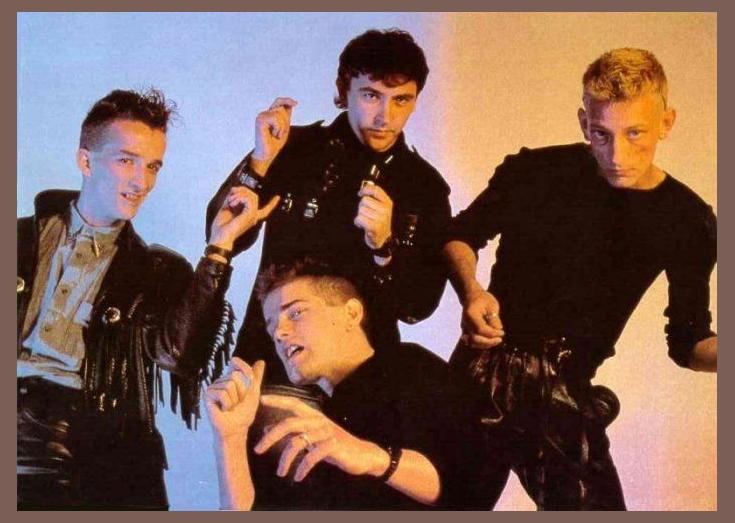 Radio Futura
Radio Futura
Radio Futura: The Pioneers of Spanish New Wave
Emerging from the vibrant streets of Madrid in the late 1970s, Radio Futura became a seminal force in the Spanish music landscape. Fronted by the charismatic Santiago Auserón, the band's eclectic blend of new wave, punk, and Spanish folk captivated audiences and ignited a musical revolution.
Challenges and Controversies:
Radio Futura's path was not without its obstacles. Their experimental sound and provocative lyrics drew both praise and criticism. The band faced censorship and backlash from conservative elements of Spanish society. However, their unwavering commitment to artistic freedom and their ability to navigate the complexities of a transitioning Spain made them a symbol of resistance and renewal.
Discography:
Radio Futura's discography spans five groundbreaking albums:
* Música Moderna (1980): A debut album that fused new wave with Spanish folk elements, establishing their unique sonic identity.
* La Ley del Desierto / El Orden del Kaos (1982): A double album that showcased the band's experimental tendencies and their ability to blend musical genres seamlessly.
* De un País en Llamas (1985): A politically charged album that reflected the social and political turmoil of Spain in the post-Franco era.
* La Canción de Juan Perro (1987): A mature and introspective album that explored themes of love, loss, and personal transformation.
* Veneno en la Piel (1990): A final album that marked the band's departure from the original lineup and a shift towards a more experimental and electronic sound.
Members:
The core members of Radio Futura were:
* Santiago Auserón (vocals, guitar)
* Enrique Sierra (guitar)
* Javier Pérez Grueso (drums)
* Luis Auserón (bass)
* Herminio Molero (keyboards)
Legacy:
Radio Futura's music left an indelible mark on Spanish popular culture. Their songs became anthems for a generation and their innovative sound inspired countless other artists. The band's unwavering commitment to artistic freedom and their ability to fuse different genres made them pioneers of Spanish new wave and a symbol of the country's musical renaissance.
Their most iconic song, "Escuela de Calor," remains a timeless classic, encapsulating the band's unique blend of Spanish folk, new wave, and punk. A testament to their enduring legacy, Radio Futura continues to be celebrated as one of the most influential and groundbreaking Spanish bands of all time.
Emerging from the vibrant streets of Madrid in the late 1970s, Radio Futura became a seminal force in the Spanish music landscape. Fronted by the charismatic Santiago Auserón, the band's eclectic blend of new wave, punk, and Spanish folk captivated audiences and ignited a musical revolution.
Challenges and Controversies:
Radio Futura's path was not without its obstacles. Their experimental sound and provocative lyrics drew both praise and criticism. The band faced censorship and backlash from conservative elements of Spanish society. However, their unwavering commitment to artistic freedom and their ability to navigate the complexities of a transitioning Spain made them a symbol of resistance and renewal.
Discography:
Radio Futura's discography spans five groundbreaking albums:
* Música Moderna (1980): A debut album that fused new wave with Spanish folk elements, establishing their unique sonic identity.
* La Ley del Desierto / El Orden del Kaos (1982): A double album that showcased the band's experimental tendencies and their ability to blend musical genres seamlessly.
* De un País en Llamas (1985): A politically charged album that reflected the social and political turmoil of Spain in the post-Franco era.
* La Canción de Juan Perro (1987): A mature and introspective album that explored themes of love, loss, and personal transformation.
* Veneno en la Piel (1990): A final album that marked the band's departure from the original lineup and a shift towards a more experimental and electronic sound.
Members:
The core members of Radio Futura were:
* Santiago Auserón (vocals, guitar)
* Enrique Sierra (guitar)
* Javier Pérez Grueso (drums)
* Luis Auserón (bass)
* Herminio Molero (keyboards)
Legacy:
Radio Futura's music left an indelible mark on Spanish popular culture. Their songs became anthems for a generation and their innovative sound inspired countless other artists. The band's unwavering commitment to artistic freedom and their ability to fuse different genres made them pioneers of Spanish new wave and a symbol of the country's musical renaissance.
Their most iconic song, "Escuela de Calor," remains a timeless classic, encapsulating the band's unique blend of Spanish folk, new wave, and punk. A testament to their enduring legacy, Radio Futura continues to be celebrated as one of the most influential and groundbreaking Spanish bands of all time.